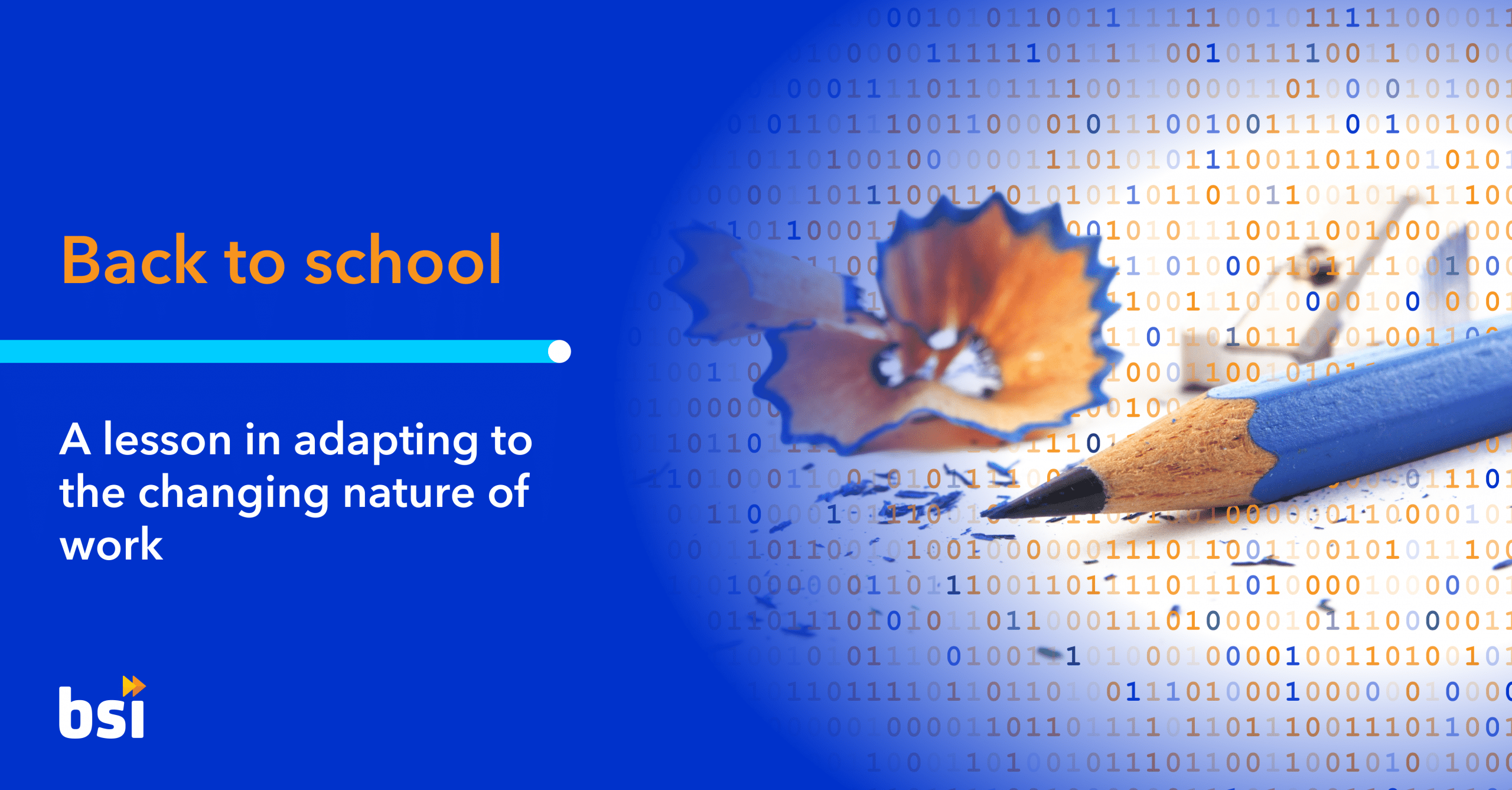As the school holidays come to an end, we at BSI are contemplating the upcoming year, particularly the evolving landscape of Learning and Development (L&D). The question arises: is it time for L&D professionals to adopt a 'back to school' mindset? With technological advancements shaping how we live, work, and learn, coupled with the ongoing disruption in business, a reassessment of our methodologies seems imperative. It's becoming increasingly evident that a return to the fundamentals, coupled with the acquisition of new skill sets, is crucial to meet the learning challenges of 2024.
A recent KPMG study focusing on business leaders' primary concerns revealed the top challenges for 2023-24: economic fluctuations, a shortage of skilled staff, and cybersecurity threats. Notably, over three-quarters of respondents identified "talent acquisition, retention, reskilling, and upskilling for a digitized future" as their foremost challenge, a trend expected to persist for the next 3-5 years (*KPMG, 2023).
The rapid pace of global change, significant world events, and technological advances present formidable challenges for organisations needing to reskill and upskill their workforce. This sentiment resonates not just in classrooms but also in boardrooms and workplaces, where professionals are preparing for the challenges and opportunities of the coming year.
How well are we equipped to support our organisations in 2024?
The disruption, technology, and its resultant change necessitate an intriguing blend of new skills, distinct from those we've traditionally cultivated. This shift demands a focus on the human aspect of these changes, understanding the implications for people and teams as they adapt to a new status quo.
This brings us to the core of learning. As learning professionals, we have the capacity to manage some of these challenges. Yet, today's environment requires us to rethink and delve deeper into our approaches, focusing on how we execute our strategies and build learning, not just what those strategies are delivered through the same tired mechanisms and modalities. If we want real outcomes and engagement, our methods and approaches need to be updated.
The trend of moving beyond traditional courses towards redefining the concept of learning has been invigorated by the advent of AI and other technologies. However, the tangible outcomes of these innovations are still emerging.
So, do L&D professionals need to learn new things?
Absolutely, yes. An 'always learning' mindset, which has been at the core of our ethos as lifelong learners, remains crucial. Despite the need for swift action, the necessity to upgrade our skills, driven by technology and other factors, persists. But what we learn is taking on a new dimension, as data, new tools, and methodologies emerge.
Gone are the days when simply sharpening our pencils was all we needed to start a new project. Now, we must take time to explore available tools and options, to test and experiment, becoming the architects of effective, more blended modern learning experiences. At BSI, we’re encouraging focused ‘play’ and working out loud to support a deeper understanding of the possibilities.
What Should L&D Professionals Focus on in 2024?
Skill 1: Data Analysis and Interpretation In our data-driven era, understanding learner behaviour through data analysis is vital for tailoring training programs. We're enhancing our skills in using advanced analytics tools to gain unique insights into learner feedback, ensuring our educational strategies align with organisational goals.
Skill 2: Technology Integration The integration of technology in adult learning is no longer a luxury but a necessity. We are spending time upskilling on new digital platforms and emerging tech tools, recognising the potential of technology to enhance the effectiveness and accessibility of training programs.
Skill 3: Adaptability and Agility Adaptability and agility are paramount in a rapidly changing world. L&D professionals must develop a mindset that embraces change, allowing for quick adjustment of strategies and programs and future proofing them to ensure they will be effective in a range of situations.
Skill 4: AI Education and Readiness Understanding the role of AI in education and training is crucial. We are focusing on continuous learning about AI applications and keeping pace with AI’s evolving capabilities and adapting both how we work and what we produce as outputs to support learning.
Skill 5: Collaboration, Inclusiveness, and Belonging Promoting stronger collaboration and inclusiveness in learning environments is essential – and this starts with our own commitments to DEI and extends into our work. A commitment to designing training programs that are inclusive and consider diverse learning needs and styles is crucial to future and ongoing engagement of learners.
Looking Ahead
As we return to school as professionals, it's essential to consider where our focus should be and what our personal learning must look like. The return to school in 2024 is more than just a preparation for the year; it symbolises a broader commitment to learning, adapting, and preparing for the future.
Mastering these skills is just the beginning, but they are instrumental in ensuring that the BSI team has the knowledge and mindset needed to define the future of learning. The dynamic nature of our field requires continuous adaptation. By staying informed and curious, as well as playful, while focusing on innovation, we hope to position ourselves as key contributors to the success of the organisations and individuals we’re here to support. Are you and your team ready to tackle 2024 with confidence? Contact BSI to explore how we can support your learning strategy and bring it to life with a new suite of effective learning tools and approaches.
Reference:
*https://assets.kpmg.com/content/dam/kpmg/au/pdf/2023/australian-business-leader-challenges-2023.pdf
